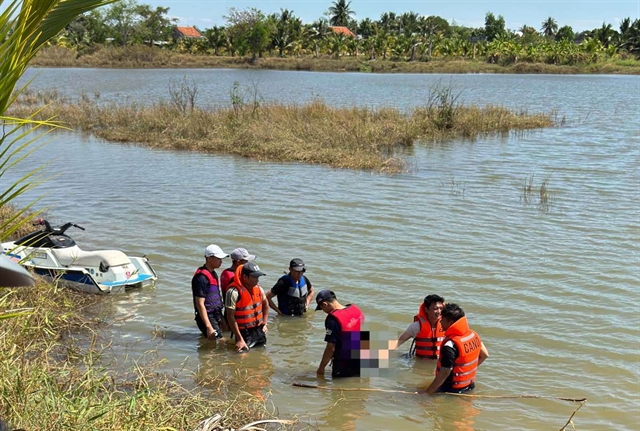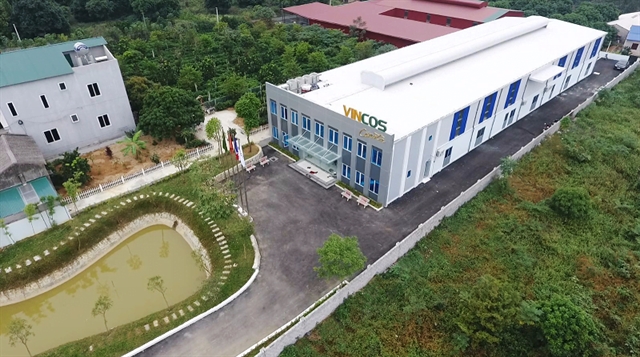 Politics & Law
Politics & Law

 |
| A local cybersecurity campaign in the northern province of Hưng Yên teaches locals to identify risks and stay vigilant against cyber frauds. — VNA/VNS Photo Thế Duyệt |
HÀ NỘI — Cybercrime has become increasingly complex with operations crossing borders and targeting various sectors, from financial fraud and data breaches to attacks on critical infrastructure such as finance, banking, energy, healthcare and transportation, and even public administration systems.
Recognising that no single country can address this challenge alone, the United Nations Convention against Cybercrime aims to strengthen cooperation mechanisms to combat cross-border cybercrime. Also known as the Hanoi Convention, this landmark document is scheduled to be signed by country leaders in Hà Nội on October 25-26, marking a significant step in international legal frameworks and Việt Nam’s global integration in the digital age.
Although still a developing country transitioning into the digital economy, Việt Nam has made strides in recent years in establishing a legal framework for cybersecurity and personal data protection, collaborating closely with international organisations to combat high-tech crimes. Technology development, innovation and digital transformation are considered a strategic choice to fulfil the country’s aspirations – a ‘golden key’ to overcome the middle-income trap, avoid stagnation and advance with the world. In this progress, cybersecurity, data security and information safety become increasingly important.
Consistent policies
The Party and the State have issued numerous important policies, notably Resolution 29 on National Defence Strategy in Cyberspace and Resolution 30 on the National Cybersecurity Strategy. In the Politburo’s strategic Resolution 57 on innovation, science and technology development, digital transformation, cybersecurity is identified as a pillar of Việt Nam’s development process. The establishment of the National Steering Committee for Cyber Security and Safety, chaired by the Prime Minister, also demonstrates the special attention of Việt Nam’s leadership on this issue.
The country’s legal framework for cybersecurity has been gradually improved. The National Assembly has passed a series of key laws, including the Law on Cybersecurity, the Law on Data and the Law on Personal Data Protection. The National Cybersecurity Association (NCA), founded in September 2023, has strengthened coordination between agencies, businesses and the community.
According to Major General Lê Xuân Minh, director of the Department of Cybersecurity and High-Tech Crime Prevention (A05) under the Ministry of Public Security, Việt Nam is actively developing its cybersecurity frameworks and enhancing capacity to meet both domestic and international standards, aiming at the best possible protection for businesses investing and operating in the country.
Key tasks are urgently implemented to secure cyberspace and serve the national digital transformation process, he said. Specialised units for cybersecurity and high-tech crime prevention have received investments in personnel, equipment and skills. Intensive training programmes and international cooperation initiatives are continuously implemented to help officers keep pace with technological advancements and emerging criminal tactics.
These forces, deployed from the central to local levels, form a wide-reaching network that actively dismantles numerous transnational cybercrime rings. In recent years, Vietnamese police have solved multiple critical cybercrime cases, such as tackling transnational online gambling operations worth trillions of đồng and arresting foreign hackers targeting Vietnamese businesses. However, eradicating these cybercrime rings at their roots remains the pressing issue. Cybercriminal operations are often hidden, difficult to trace and operated by cross-border networks exploiting legal loopholes between countries.
The Hanoi Convention responds to this challenge by presenting countries with legal tools and international cooperation mechanisms to ensure safety and security in cyberspace.
Collective efforts
According to a 2024 report by the NCA, Việt Nam is among the countries heavily affected by cybercriminal activities. The statistics are alarming – one in every 220 smartphone users falls victim to cybercrime and 70 per cent of the national population encounters at least one scam call or message each month. NCA Permanent Vice Chairman Lieutenant General Nguyễn Minh Chính noted that there are now faster, more sophisticated large-scale cyberattacks targeting critical infrastructure, businesses and citizens.
In addition, the spread of incorrect and harmful information on digital platforms and the misuse of artificial intelligence (AI) are increasingly prevalent. High-tech crimes such as fraud, data trading and even drug and arms trafficking in cyberspace are growing more complex, he said.
Việt Nam’s cybersecurity legal framework is improving, said Chính, but it has not yet kept pace with technological advancements. Meanwhile, awareness among some officials, businesses and citizens remains limited, creating vulnerabilities that criminals can exploit. The country’s technological infrastructure still lacks consistency and remains reliant on foreign imported solutions, which pose further risks.
“Therefore, the Hanoi Convention not only opens opportunities for Việt Nam to strengthen international legal cooperation and improve its capacity to combat cybercrime, but it also serves as a foundation to raise awareness across the political system, citizens and businesses about ensuring security and safety in cyberspace,” said the NCA leader. Mobilising the strength of the people is the most sustainable and effective solution in cybersecurity, he stressed.
Many localities across the country have innovated by integrating traditional campaigns on digital platforms and adapting to new societal behaviours in cyberspace, representing a critical shift in the local digital transformation process.
Local cyber safety programmes aimed at schools and neighbourhoods have been deployed in an effort to protect citizens from cybercrime, especially vulnerable groups. This integration not only strengthens the core role of law enforcers but also encourages citizen engagement in cybersecurity, gradually building a "people's security posture" in cyberspace tailored to specific localities and their actual contexts. — VNS




